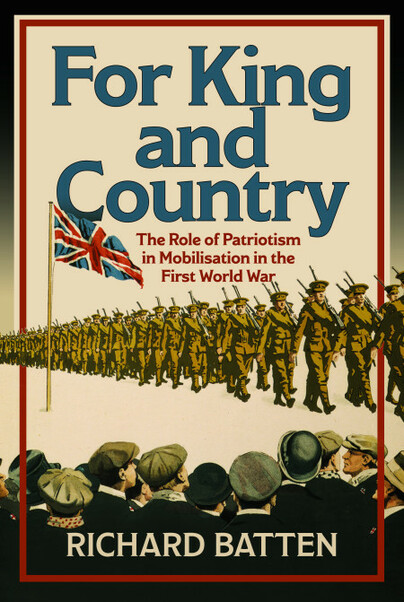For King and Country (Hardback)
The Role of Patriotism in Mobilisation in the First World War
Imprint: Pen & Sword History
Pages: 256
Illustrations: 12 mono illustrations
ISBN: 9781399060028
Published: 31st January 2025
(click here for international delivery rates)
Order within the next 3 minutes to get your order processed the next working day!
Need a currency converter? Check XE.com for live rates
This book is an original interpretation of domestic patriotism and the limitations of wartime mobilisation in rural and urban communities of the British Home Front at a local level from 1914-1918. It is a critical examination of the wartime role of the local elite as 'superintendents of patriotism'. The reader is immediately drawn into the riveting human and social interest with an account of 'khaki fever' leading to 'moral panic' resulting from the attraction of military uniforms and a perceived need for elite guidance and control while expanding mobilisation. Local writer and commentator Stephen Reynolds, with rare local sources of national relevance, defined the elite groups as 'provincial patriots', a hugely patriotic class who compared their patriotism with that of the local populace. They were the elite 'policemen and women' of patriotism who tried to enforce their concept of patriotism and codes of ideal conduct in wartime on the local population and to further mobilisation. They served on the military service tribunals to deal with appeals against enlistment following conscription, and elite pressure could be decisive. Although attempts to mobilise for military service met with limited success, philanthropic endeavours that constituted 'humanitarian' mobilisation achieved greater success and were widespread across Devon. The essential national role for agriculture and fishing - very much part of Devon and most of the country - continued as essential and the military contribution continued. The book uses Devon as a case study but reaches out to the whole United Kingdom in total war and with similar examples in Europe, notably France and Germany. It shows the tensions between elites - landed gentry and urban professionals - and the local populations, rural (mostly) and urban. The 'provincial patriots', if not their families, were above military age. The study analyses orthodox views about mobilisation, dissent, and domestic patriotism on the Home Front in the First World War and the wartime roles of local elites. There was, no doubt, flocking to the colours, but also resistance and alternative forms of patriotic contribution.
“Richard Batten’s book provides a rich, intriguing and insightful exploration of Devon society during the Great War, challenging the view that an increasingly dominant central state played in mobilising the Home Front by focusing instead on self-appointed ‘provincial patriots’ from among the country elites whose continuing influence was both crucial but also often resisted and resented by their compatriots.”
Dr Tim Rees, University of Exeter
About Richard Batten
Richard Batten is an Honorary Research Fellow at the University of Exeter where he completed his PhD on which the proposed book is based. He has contributed to the blog of the Centre of Imperial and Global History at the University of Exeter. His extensive media work includes broadcasting on BBC Radio Devon on his research.














